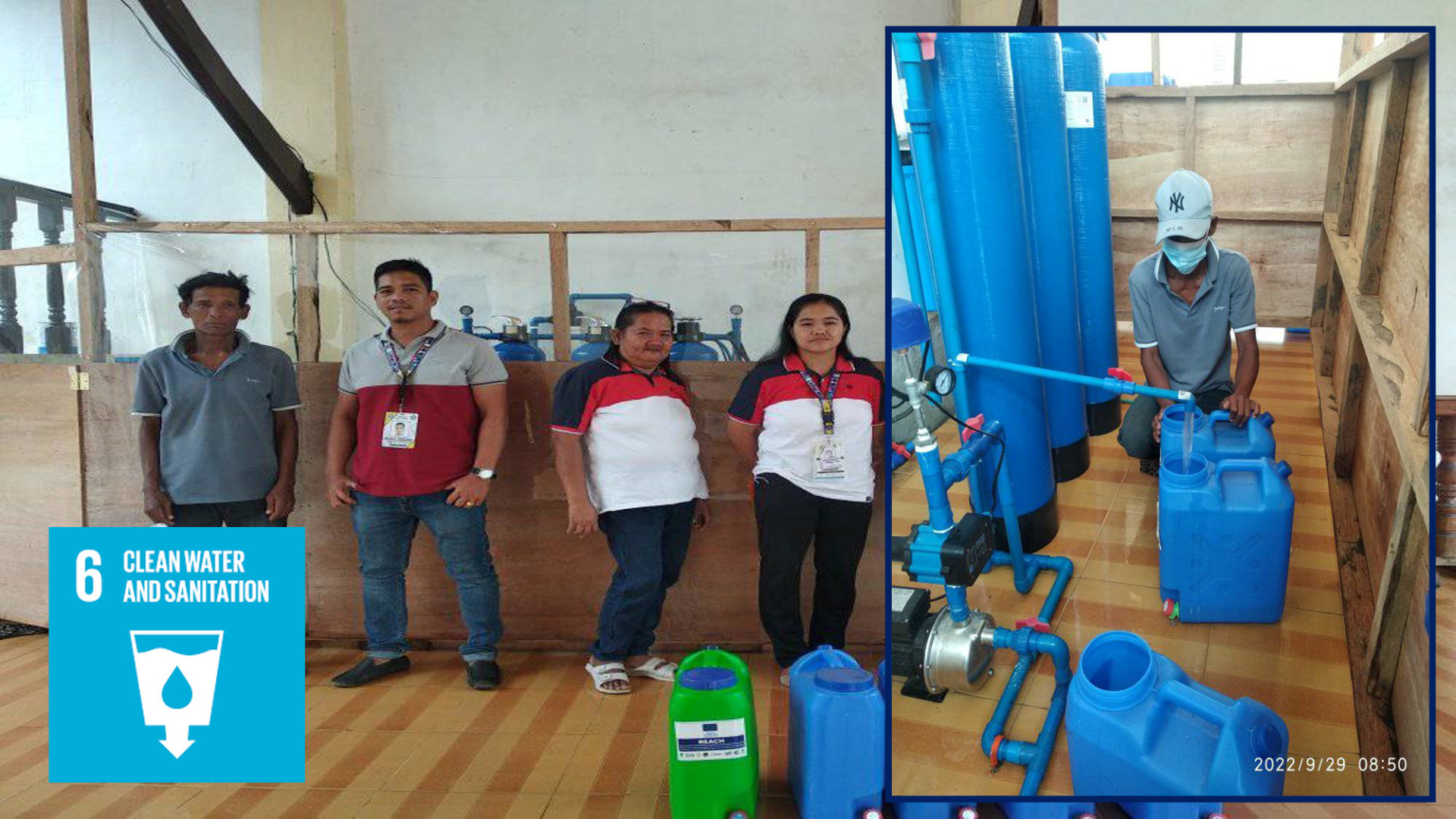‘Collective, local action for global impact’: Del Carmen’s SDG success story
This piece was written by Alfredo Coro, Mayor of Del Carmen, Philippines and chair of ICLEI’s Global Biodiversity Portfolio, and is part of our Sustainable Cities series, done in collaboration with Impakter, an online magazine aimed at connecting the knowledge hub with the public, using the force of transparent and impactful journalism.
I recognized that the United Nations Sustainable Development Goals (SDGs) are strongly advocated in cities, but in rural and coastal communities they are an afterthought — especially with problems like food security, literacy, malnutrition, exacerbating climate change issues, global inflation, and limited fiscal resources.
However, when achieving SDGs is done collectively — by local governments working together to address connected concerns such as ecosystems, migration of people, and sharing of natural assets — the impact is magnified for replication and scale.
The experience of the local government of Del Carmen in trying to achieve SDGs is about aligning the local vision with the global action of SDGs. This allowed our transformative story to happen.
The Municipality of Del Carmen is one of the nine municipalities of Siargao Islands in the Philippines, with Siargao Island being recognized as one of the top 10 islands in Asia by the Conde Nast Traveler’s Readers’ Choice Awards for 2023.
In 2020 and 2021, our community was devastated by the COVID-19 pandemic and Super Typhoon Rai (local name Odette).
Since 2022, as part of our recovery from these events, the local government has been consulting with various stakeholders to co-create solutions and programs; a process we locally call “Tambayayong,” which adheres to SDG 17 (Partnerships for the Goals) and establishes co-ownership. We prioritized the first six fundamental SDGs while still committing to the other ten goals:
SDG 1: No Poverty. While we are still far from this target, we were able to reduce the poverty rate from 69.9% in 2010 to 25.3% by 2023, which is a 44.6% drop.
SDG 2: Zero Hunger. Malnourishment and stunting dropped from 26% in 2009 to less than 1% as of 2024. During the pandemic and after Super Typhoon Rai, our first agenda was to ensure consistent and sustainable access to food, leading to zero hunger and crimes related to hunger.
SDG 3: Good Health and Well-being. The local government of Del Carmen runs the Seal of Health Governance program, which is focused on strengthening health leadership at the “barangay” level. This gave communities the confidence to address local health issues and related social determinants. Our approach has been replicated in many other municipalities in the Philippines and was recognized overseas as a social innovation for health.
SDG 4: Quality Education. Even though providing education is a non-devolved function of the local government, we still established an Education Quality Improvement Program focused on reading and numeracy, literacy and comprehension. We have rehabilitated our reading libraries and pushed more literacy and numeracy program collaborations to address the education crisis in our country.

SDG 5: Gender Equality. The local government of Del Carmen is now developing the Women’s Development Center to establish women-led enterprises in industries such as garment production, tourism services, and food processing, which complement agriculture, farming, and eco-tourism.
SDG 6: Clean Water and Sanitation. We established water filter stations in five strategic locations in the mainland of Del Carmen to support 16 barangays, and one water filter station in an island community to be replicated in three more island communities. The program expands to sanitation, hygiene, and watershed forest management.

In the monitoring and evaluation to ensure the SDGs are met, policy needs to be defined so that resources and finances are appropriated following the principles of good governance, adhering to SDG 16 (Peace, Justice, and Strong Institutions). This is where the other key stakeholders need to be more involved: with the median age in the Philippines being 25, the youth of Del Carmen needs to be ready to lead our community by the time they are 25, with the SDGs as desired outcomes.
An SDG is not a government target but a target of humanity, and the youth of today need to have a bigger role to play for humanity. I therefore call upon the local governments to review and define the plans and programs towards achieving the SDG targets with the youth, and collectively, we should be able to meet the goals of 2030.
This article is part of our Sustainable Cities series, done in collaboration with Impakter, an online magazine aimed at connecting the knowledge hub with the public, using the force of transparent and impactful journalism.







